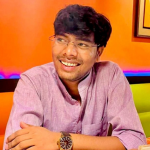Course Information
- 2023-24
- CDE213
- 5-Year B.A., LL.B. (Hons.)
- V
- Mar 2024
- Elective Course
How does this course relate to the programme curriculum: Does it develop on a prior course in the programme or is it a foundational or standalone course? This course will introduce theory and debates on emotions, with a focus on law and social justice underpinnings of the everyday mental appraisal of resistance, anger, disgust, hope, trust and humiliation of marginalised communities in social and political fields. It would first approach how for a long period, legal scholars and philosophers assumed emotions have no relevance in the process of law; are considered part of private affairs and operate through the basis of reason. However, due to the rise of marginalised politics (Gender, Race and Caste in India) by non-elite groups in the society, the role of emotions revived in the field of politics in the form of resistance, protests and social justice. Hence, the course will try to unfold how these forms of protests and resistance by marginalised sections automatically reiterate the role of emotions in the legal landscape of the state and government. Legal philosophers like Martha Nussbaum and Martha Minnow strongly illustrate the significance of emotions in both law and social justice. From this paradigm, the present course elucidates its basic theoretical framework by engaging with many contemporary scholars and different events and protests in social and political studies.
Describe how you have approached the course. What have you included/excluded and why? Choice of materials: primary or secondary readings / case law; The materials for this course would cover theoretical essays, legal decisions, televisual materials like film, short documentaries, and narrative fiction. The aesthetic tool would be used to lay out a sensibility and understanding of emotions in different events. Describe your pedagogical method: lectures, Socratic discussion, seminar style discussion, response papers or group work, field work;
The course will adopt some lectures for theoretical clarification, initially and curate a seminar-style method in the classroom by choosing a specific theme and debate from the prescribed modules. In each session, every student is expected to read the provided materials for the respective theme and participate actively in the discussion. As a course instructor, I will set the classroom and give the initial glimpses of the theme and later we shall discuss the doubts collectively. Students will be asked to volunteer for a short presentation throughout the term by deploying a seminar kind of question in each session to drive the discussion.
Describe the layout of the course: module structure and sequence.
First, the course will unravel how emotions are important in understanding politics. How a particular society functions as a body polity constitutes the idea of politics and institutions with the core theme of law and social justice. Then it will cover how emotions are connected with society/politics through some research/methodological essays.
Delve into the practical events and cases and how they are connected to the process of law and justice particularly in India. Examine the ongoing debates of whether emotions are innate or social constructs, exploring the interplay between identity, social justice and law. Do emotions and social justice politics refrain the terrain of law? Then, the course will bring a discussion on some specific cases from courtroom to courtyard to understand how emotions implicitly and explicitly drive the exposition of law and jurisprudence. Here, we will watch one film and discuss it. Finally, the course will cover the multiple marginalised identities connected to the law and social justice process of emotions. The course entangles the philosophical nuances of emotions with the anthropological (ethnographic work) reading of law and social justice from everyday ontology/experience.


